Simon Jordan
Re-ranking for Writer Identification and Writer Retrieval
Jul 14, 2020
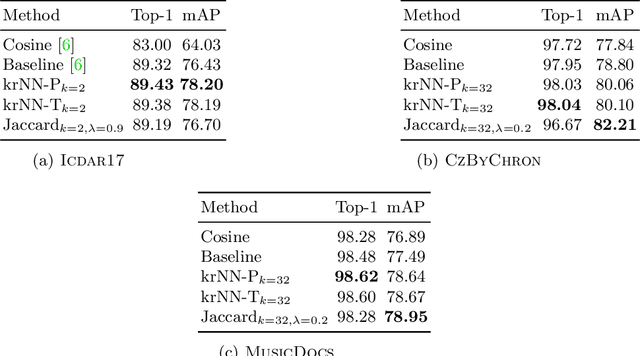
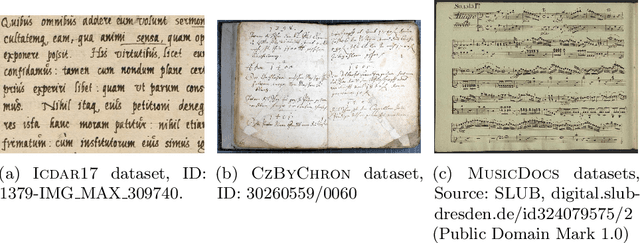
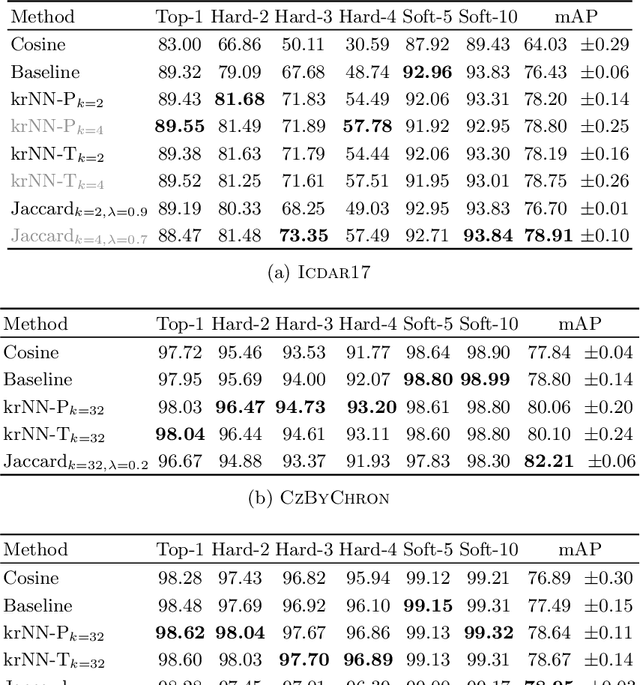
Abstract:Automatic writer identification is a common problem in document analysis. State-of-the-art methods typically focus on the feature extraction step with traditional or deep-learning-based techniques. In retrieval problems, re-ranking is a commonly used technique to improve the results. Re-ranking refines an initial ranking result by using the knowledge contained in the ranked result, e. g., by exploiting nearest neighbor relations. To the best of our knowledge, re-ranking has not been used for writer identification/retrieval. A possible reason might be that publicly available benchmark datasets contain only few samples per writer which makes a re-ranking less promising. We show that a re-ranking step based on k-reciprocal nearest neighbor relationships is advantageous for writer identification, even if only a few samples per writer are available. We use these reciprocal relationships in two ways: encode them into new vectors, as originally proposed, or integrate them in terms of query-expansion. We show that both techniques outperform the baseline results in terms of mAP on three writer identification datasets.
Using a KG-Copy Network for Non-Goal Oriented Dialogues
Oct 17, 2019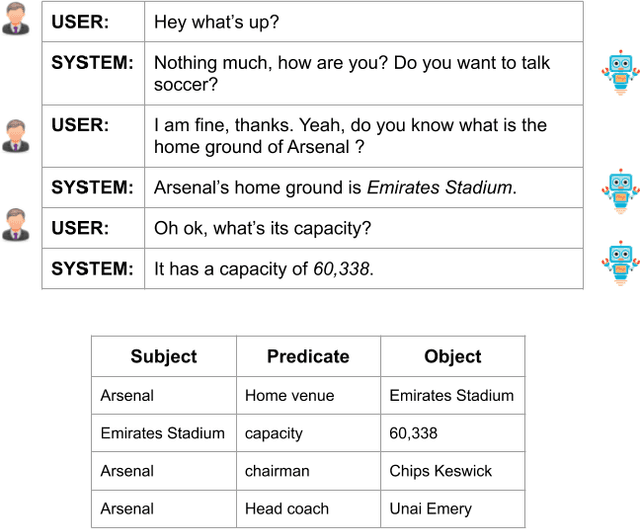

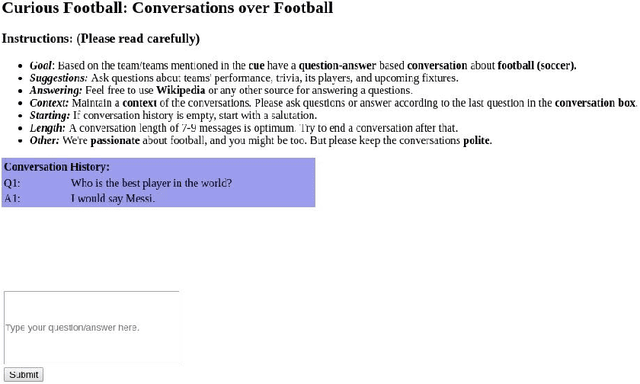
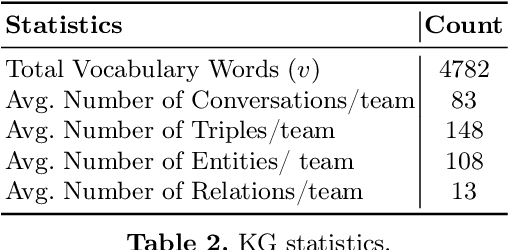
Abstract:Non-goal oriented, generative dialogue systems lack the ability to generate answers with grounded facts. A knowledge graph can be considered an abstraction of the real world consisting of well-grounded facts. This paper addresses the problem of generating well grounded responses by integrating knowledge graphs into the dialogue systems response generation process, in an end-to-end manner. A dataset for nongoal oriented dialogues is proposed in this paper in the domain of soccer, conversing on different clubs and national teams along with a knowledge graph for each of these teams. A novel neural network architecture is also proposed as a baseline on this dataset, which can integrate knowledge graphs into the response generation process, producing well articulated, knowledge grounded responses. Empirical evidence suggests that the proposed model performs better than other state-of-the-art models for knowledge graph integrated dialogue systems.
 Add to Chrome
Add to Chrome Add to Firefox
Add to Firefox Add to Edge
Add to Edge